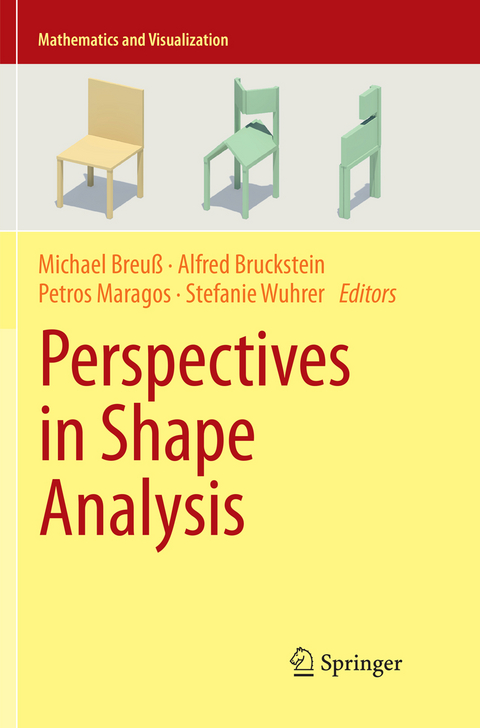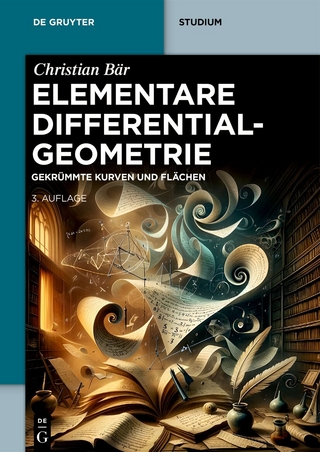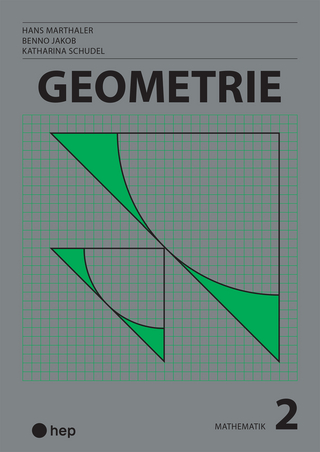
Perspectives in Shape Analysis
Springer International Publishing (Verlag)
978-3-319-79667-3 (ISBN)
Over the last decade, it has become increasingly affordable to digitize shape information at high resolution. Yet analyzing and processing this data remains challenging because of the large amount of data involved, and because modern applications such as human-computer interaction require real-time processing. Meeting these challenges requires interdisciplinary approaches that combine concepts from a variety of research areas, including numerical computing, differential geometry, deformable shape modeling, sparse data representation, and machine learning. On the algorithmic side, many shape analysis tasks are modeled using partial differential equations, which can be solved using tools from the field of numerical computing. The fields of differential geometry and deformable shape modeling have recently begun to influence shape analysis methods. Furthermore, tools from the field of sparse representations, which aim to describe input data using a compressible representation with respect to a set of carefully selected basic elements, have the potential to significantly reduce the amount of data that needs to be processed in shape analysis tasks. The related field of machine learning offers similar potential.
The goal of the Dagstuhl Seminar on New Perspectives in Shape Analysis held in February 2014 was to address these challenges with the help of the latest tools related to geometric, algorithmic and numerical concepts and to bring together researchers at the forefront of shape analysis who can work together to identify open problems and novel solutions. The book resulting from this seminar will appeal to researchers in the field of shape analysis,image and vision, from those who want to become more familiar with the field, to experts interested in learning about the latest advances.
Part I Numerical Computing for Shape Analysis: 1 Ornament Analysis with the Help of Screened Poisson Shape Fields: S. Tari.- 2 A Comparison of Non-Lambertian Models for the Shape-from-Shading Problem: S. Tozza and M. Falcone.- 3 Direct Variational Perspective Shape from Shading with Cartesian Depth Parameterisation Y. Chul Ju et al.- 4 Amoeba Techniques for Shape and Texture Analysis: M. Welk.- 5 Increasing the Power of Shape Descriptor Based Object Analysis Techniques: J. Zuníc et al.- 6 Shape Distances for Binary Image Segmentation F.R. Schmidt et al.- 7 Segmentation in Point Clouds from RGB-D using Spectral Graph Reduction: M. Keuper and Th. Brox.- Part II Sparse Data Representation and Machine Learning for Shape Analysis: 8 Shape Compaction: H. Li and H. Zhang.- 9 Homological Shape Analysis through Discrete Morse Theory: L. de Floriani et al.- 10 Sparse Modeling of Intrinsic Correspondences: J. Pokrass et al.- 11 Applying Random Forests to the Problem of Dense Non-Rigid Shape Correspondence: M. Vestner et al.- 12 Accelerating Deformable Part Models with Branch-and-Bound: I. Kokkinos.- Part III Deformable Shape Modeling: 13 Non-Rigid Shape Correspondence in the Spectral Domain: A. Dubrovina.- 14 The Perspective Face Shape Ambiguity: W.A.P. Smith.- 15 On Shape Recognition and Language: P. Maragos.- 16 Tongue Mesh Extraction from 3D MRI Data of the Human Vocal Tract: A. Hewer et al.
| Erscheint lt. Verlag | 14.6.2018 |
|---|---|
| Reihe/Serie | Mathematics and Visualization |
| Zusatzinfo | XVII, 370 p. 144 illus., 82 illus. in color. |
| Verlagsort | Cham |
| Sprache | englisch |
| Maße | 155 x 235 mm |
| Gewicht | 797 g |
| Themenwelt | Mathematik / Informatik ► Mathematik ► Geometrie / Topologie |
| Schlagworte | discrete and continuous shape models • machine learning • Mathematical Morphology • shape analysis • sparsity |
| ISBN-10 | 3-319-79667-4 / 3319796674 |
| ISBN-13 | 978-3-319-79667-3 / 9783319796673 |
| Zustand | Neuware |
| Haben Sie eine Frage zum Produkt? |
aus dem Bereich


